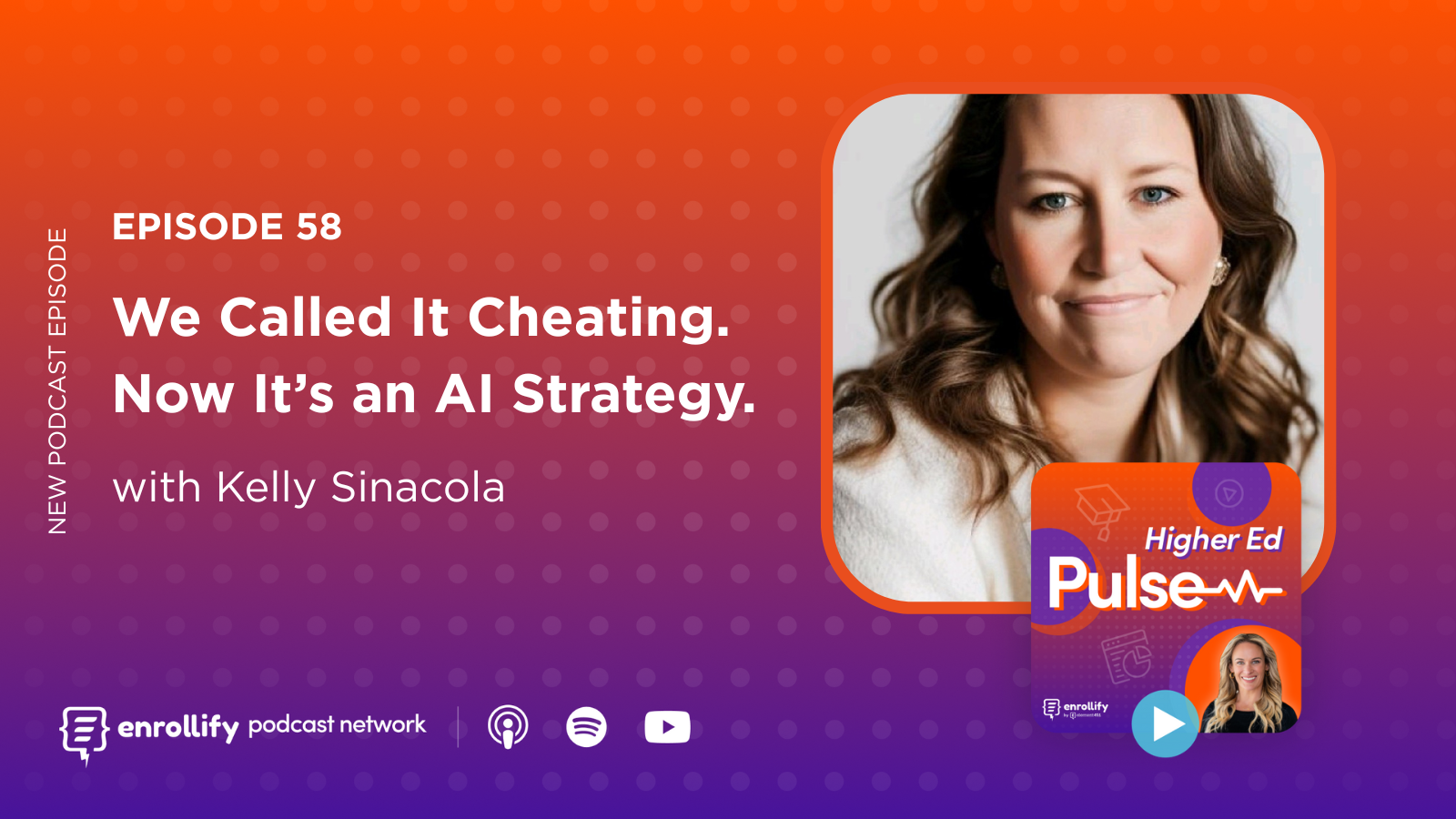About the Episode
About the Episode:
In this episode of The Pulse, Mallory chats with Mike Morland, Director of Communications and Marketing in the Office of Diversity, Equity, and Inclusion at the University of Michigan. Mike shares insights about his role, the impact of the innovative Wolverine Pathways program, and the importance of storytelling and data in advancing DEI initiatives. Learn how U of M’s efforts are making higher education more accessible and the strategies small teams can use to drive significant change.
Key Takeaways
- Small Teams Can Have Big Impact: Even with limited resources, small teams can achieve meaningful outcomes by focusing on collaboration, storytelling, and strategic communication.
- Data Meets Humanity: Combining compelling stories with data-driven results creates transparency and builds trust with stakeholders.
- Invest in Community Engagement: Programs like Wolverine Pathways demonstrate the power of creating access pipelines that serve underserved communities while promoting educational equity.
- Storytelling Drives Advocacy: Storytelling is key to humanizing data and highlighting the people behind the programs, fostering connection and engagement.
Inside the University of Michigan's Office of DEI
Mike Morland has been part of the University of Michigan’s Office of DEI since 2015, helping promote the work of its four programming units. These units focus on everything from community outreach and student support to pipeline programs that connect underserved communities with the university.
Mike shares that the office employs over 60 staff members—a testament to the university’s commitment to equity and inclusion. However, he notes that the work goes beyond just serving the university’s own population. Through initiatives like Wolverine Pathways, the office is creating a bridge for students from underserved communities to pursue higher education, whether at U-M or elsewhere.
Spotlight on Wolverine Pathways: A Pipeline to Opportunity
Wolverine Pathways is one of U-M’s signature programs, designed to serve middle and high school students in under-resourced Michigan communities. Participants engage in academic enrichment activities from 6th through 12th grade, gaining tools to succeed in higher education.
The program’s impact is amplified by a four-year tuition scholarship for students who complete the program and are admitted to U-M. But even those who don’t attend U-M benefit from the program’s focus on supporting all participants in their journey to higher education.
Mike proudly notes that nearly 100% of Wolverine Pathways graduates have gone on to college, demonstrating the program’s commitment to the public good. “It’s not just about a Michigan education,” he says. “It’s about making education accessible for everyone.”
Data and Storytelling: A Winning Combination
As a communications professional, Mike emphasizes the importance of blending data with human-centric storytelling. While his office’s work is guided by data—thanks to leadership from Vice Provost for Equity and Inclusion Tabbye Chavous—Mike’s team focuses on bringing those numbers to life.
This is done through a variety of channels, including social media, websites, and community partnerships. One of the office’s standout initiatives is its Artist in Residence program, which invites students—regardless of major—to create visual content for social media that celebrates cultural events and holidays.
“We want to make that humanizing connection,” Mike explains. “Who are the faces behind the work? How are we changing lives?”
Advocating for DEI With Limited Resources
In his EduWeb Summit session, Advocating Change Through Communications, Mike shared strategies for higher ed professionals working with limited resources. At U-M, his four-person communications team uses creativity and collaboration to amplify DEI initiatives.
Mike offers three key takeaways for institutions looking to prioritize DEI:
- Maximize Resources: Small teams can achieve outsized results by focusing on high-impact initiatives and leveraging partnerships.
- Clear Misunderstandings and Address Resistance: Transparency and communication are key to navigating internal and external resistance to DEI efforts.
- Center Storytelling: Whether you’re sharing data or reporting outcomes, storytelling is essential to fostering connection and advocacy.
A Success Story in DEI Advocacy
One of the cornerstones of the University of Michigan’s DEI efforts is its annual report, which shares progress, challenges, and outcomes with the university community. By combining transparency with accessibility, the report ensures stakeholders at all levels understand the impact of the university’s initiatives.
Mike’s team excels at distilling complex data into digestible, engaging narratives. This approach has not only built trust within the university but has also inspired other institutions to adopt similar strategies.
Connect With Our Host:
Mallory Willsea
https://www.linkedin.com/in/mallorywillsea/
https://twitter.com/mallorywillsea
About The Enrollify Podcast Network: The Higher Ed Pulse is a part of the Enrollify Podcast Network. If you like this podcast, chances are you’ll like other Enrollify shows too!
Some of our favorites include Generation AI and Confessions of a Higher Education Social Media Manager.
Enrollify is made possible by Element451 — the next-generation AI student engagement platform helping institutions create meaningful and personalized interactions with students. Learn more at element451.com.















